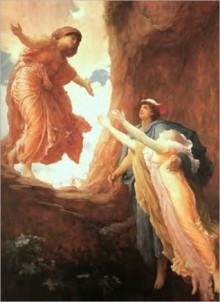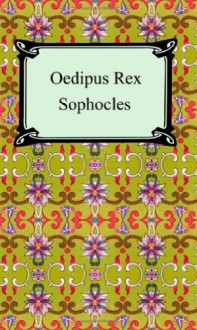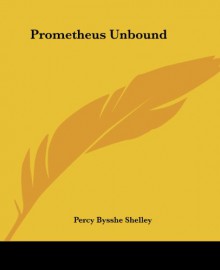
There seems to be a debate as to the usefulness of this little text and I would pretty much fall into the category of not much. The reason that I say that is because if this book was lost then we would lose very little of our understanding of Greek Mythology. Everything that is contained in this little book is also contained in more expanded works such as the Library of Greek Mythology and Ovid. While it is a primary source, it is still something that we could probably do without. Fortunately its small size means that it does not take up much space on my bookshelf, however I would probably not find myself ever actually needing to reference it. Okay, we could probably use it to talk about the accuracy of later works, but then again, this is Greek mythology, there is no consistency in it. In fact, there isn't even any consistency with the twelve tasks of Heracles.
Now, you would probably say that since this book is one of the earliest Greek texts then it gives us an idea of the development of Greek mythology, and yes, that is probably true to an extent, and from an anthropological view that is probably important, but I am not interested in that. On the other hand a lot of authors seem to look back at Hesiod with some sought of awe, and granted, it helps us understand the background from which they were writing, but remember most of Greek mythology back at this time was passed down by word of mouth and Hesiod is only one view of it.
I have written before, and will continue to write, about how my position with regards to the Greek gods is that they were humans that were deified, and Hesiod once again goes on to prove that point. This is a genealogical text much in the same way that sections of the Bible are genealogical texts, however by the time that Hesiod came around the Greek Gods had already been deified. There are some major differences between the two forms of genealogy though. As mentioned, the non-biblical genealogies tend to deal only with the gods, unless you are looking at a familial genealogy, where as the Biblical genealogies all deal with humans, and the Bible is very specific that the people mention in the genealogies are human. Secondly the biblical genealogies actually serve a purpose where as the non-biblical genealogies are simply a list of names.
The purpose of the biblical genealogy is to trace the line of people who in the end become the ancestors of Christ. These genealogies tend to reach their fulfillment in the Gospels, with both Matthew and Luke (and also, as some have argued, with John as well) containing genealogies. We do note that there are differences in the genealogies, and some have criticised the Bible for that, but I will simply say that the differences simply come out of methodology as opposed to inherent errors. My understanding is that in both maths and science one can reach the same proof even though two different methodologies were used.
Basically, whenever we see a genealogy in the Old Testament we are always looking at how it is directing us towards the saviour that was promised in Genesis 3. For those who are familiar with these genealogies you will note that they tend to only go down in one line, meaning that while a list of children may be given, the genealogy will end up focusing only one a handful of these children to narrow it down to a specific point. The exception is the table of nations in Genesis 10, the purpose of which is to outline the beginning of the nations as the readers would have known them to be at the time (namely during the Exodus). We do see a similarity between the table of nations and some Greek genealogies as it appears that a nation back then was defined by the father of the nation as opposed to a specific culture, language group, or location (and Apollodorus does give us that idea in the library of Greek Mythology).
There is a mention of the war of the Gods in Hesiod, and once again I have speculated on the origins of these wars. They can be twofold. The first is the idea that these wars developed out of different tribal groups moving into an already inhabited area bring their own culture and gods with them, winning a victory over the inhabitants, and installing their own culture (as defined by their gods). For instance, in early times we have a people group who worshipped Chronos as their chief God, but then they are invaded by a people who worshipped Zeus as their chief God and as the new group overran and conquered the old group, then Chronos was sidelined in favour of Zeus.
The second idea is the idea that I have proposed that these gods are little more than deified humans whose existence has been lost in the midst of times, so what we are actually seeing is some form of succession crisis. This would be particularly relevant if we are looking at an Antediluvian civilisation. In the era of short life spans and high morality, such succession crises would not be evident since when the old king died then the new king would still be old enough to assume the throne, but young enough not to have a number of children that would have to wait a long time for them to ascend the throne amongst a multitude of competeing claims. It differs today in that the Queen of England, the matriarch of the royal family, is still alive and well, and her grandchildren are now ready to marry and have kids. Pope John Paul II was the oldest living Pope in the history of the papacy, and it is likely that Pope Benedict will be around for a long time yet (unless he meets either with an unfortunate accident, or is removed for some reason or another - noting that this review was written prior to him stepping down).
When you have the antediluvian civilisation, where biblically (and elsewhere) you have people living for hundreds of years, even if you did not begin having children until the age of a hundred, by the time you die (even if it is five to six hundred years old) you still have at least four living generations below you, all of them struggling to get your position, and knowing that for them to get to that position they would have to wait a very long time. This is something that we see in this text, namely a fear in Chronos that his children would rise up and overthrow him, so he acts proactively and removes them before they have a chance of removing him. Much of it is allegorical though (and for the sake of space I will not go into detail here, for instance the gods all seem to have been born as adults, and also Chronos eats his children, but upon his defeat, all of them are released) so it can be difficult to understand what actually went on, though to take it literally can in itself be dangerous (and also somewhat ridiculous).
The final point I wish to make is the interesting note that Hesiod was a shephard tending sheep on Mount Helicon when he received this vision and wrote it down. This is something that seems to happen throughout the history of humanity in that many religious icons seem to have come from humble pasts and have made a tremendous impact upon human history. Many have suggested (and it is true to an extent) that history, up until the mid 18th century, was written by the upper class. However the reason for that is because it was only the upper class that had the time to write histories, as well as being the only ones who could read and write. However, this is not always the case, particularly with these early civilisations, because much of the history was passed down by word of mouth. This is why we can have shepherds actually becoming literary heroes because they did not need to read and write, they simply needed to be able to tell a story people could remember, and also convince them that they had a vision (or actually have had a vision) to make people sit up and listen.

 Log in with Facebook
Log in with Facebook 











